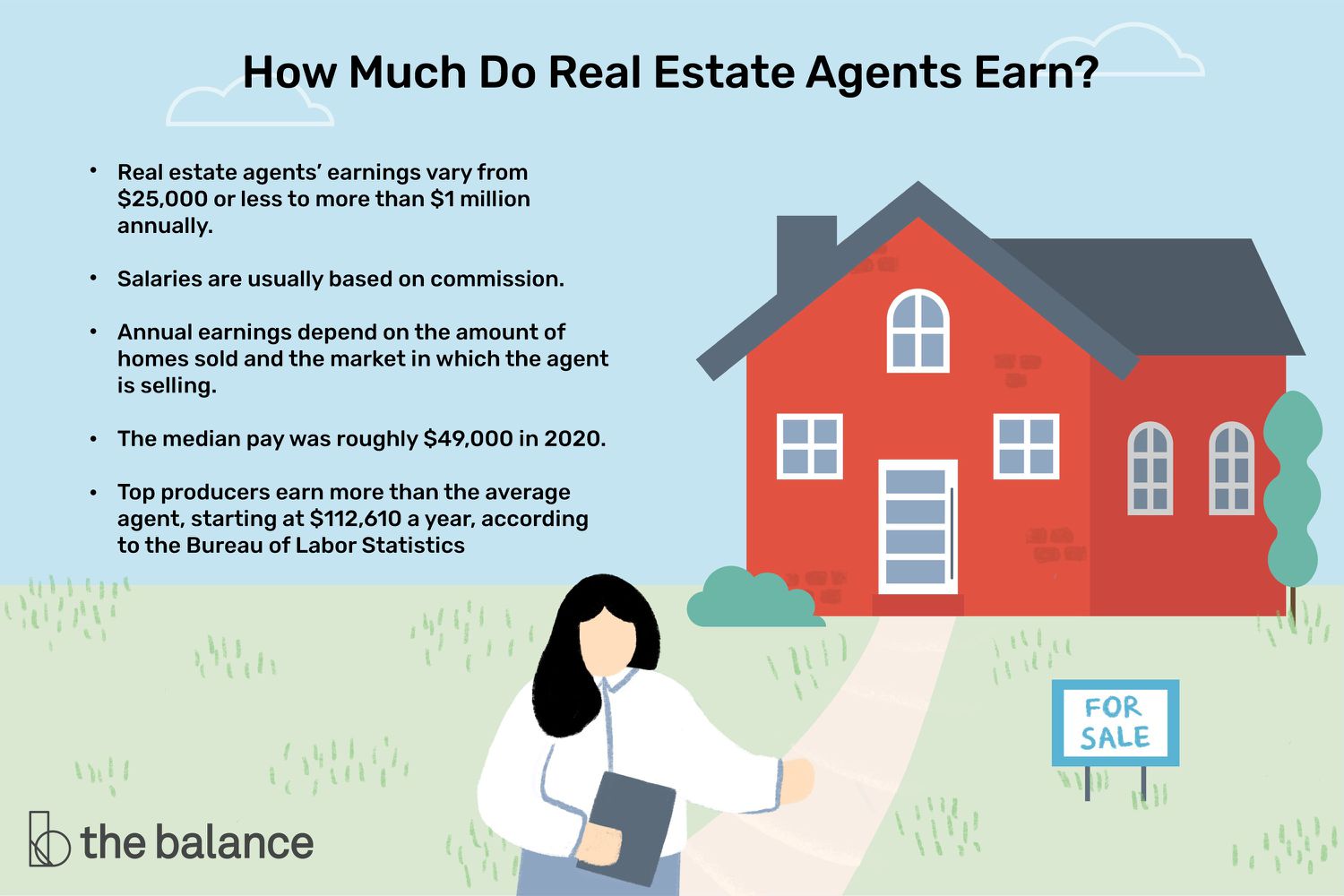
An exclusive right to sell agreement is a legal document that defines the rights of a seller and a real estate agent. The terms of the contract are often months or years in length, and the agent will receive a commission for the sale. The commission usually amounts to 5-6% of the property or home's price. In some cases, a buyer can cancel the contract in the middle of the term. There are however some disadvantages to this listing contract.
Unlike an exclusive right to sell, a buyer's exclusive agency agreement gives the buyer the right to only work with a specific firm. It also guarantees that the buyer will only be able to work with the particular firm. The two sides are more open to each other's ideas and work together better. Since the buyer's agent will be representing the buyer and not the seller, he or she will be more motivated to market and sell the property.
Another benefit to the buyer's agency listing is the possibility of saving on fees. A commission is paid to the agent, which is based on the actual cost of products purchased and returned. This commission excludes sales tax and any discounts. If the buyer uses the services of another agent, the seller will still be required to pay the agent's commission.
The buyer can sign an exclusive agency listing agreement if he or she chooses. This contract will remain in effect for the entire term of the contract. However, the term can be as short as a few weeks, or as long as several months. Therefore, the buyer should understand the fine print of the contract to avoid any unpleasant surprises. It is a smart idea to speak with a qualified realty professional before signing an agency listing agreement.

Whether or not a buyer's exclusive agency listing is beneficial, it is important to know the terms of the contract. It is also advisable to read the entire agreement carefully, since the buyer will not be able to change his or her agent once it is signed. Ask a real estate lawyer for any questions.
FAQ
What are some of the disadvantages of a fixed mortgage rate?
Fixed-rate loans have higher initial fees than adjustable-rate ones. If you decide to sell your house before the term ends, the difference between the sale price of your home and the outstanding balance could result in a significant loss.
Should I use a broker to help me with my mortgage?
A mortgage broker can help you find a rate that is competitive if it is important to you. Brokers can negotiate deals for you with multiple lenders. Some brokers do take a commission from lenders. Before signing up for any broker, it is important to verify the fees.
What is a reverse mortgage?
Reverse mortgages are a way to borrow funds from your home, without having any equity. This reverse mortgage allows you to take out funds from your home's equity and still live there. There are two types: conventional and government-insured (FHA). You must repay the amount borrowed and pay an origination fee for a conventional reverse loan. FHA insurance covers your repayments.
Statistics
- This seems to be a more popular trend as the U.S. Census Bureau reports the homeownership rate was around 65% last year. (fortunebuilders.com)
- The FHA sets its desirable debt-to-income ratio at 43%. (fortunebuilders.com)
- Private mortgage insurance may be required for conventional loans when the borrower puts less than 20% down.4 FHA loans are mortgage loans issued by private lenders and backed by the federal government. (investopedia.com)
- Based on your credit scores and other financial details, your lender offers you a 3.5% interest rate on loan. (investopedia.com)
- This means that all of your housing-related expenses each month do not exceed 43% of your monthly income. (fortunebuilders.com)
External Links
How To
How to manage a rental property
It can be a great way for you to make extra income, but there are many things to consider before you rent your house. This article will help you decide whether you want to rent your house and provide tips for managing a rental property.
This is the place to start if you are thinking about renting out your home.
-
What should I consider first? Take a look at your financial situation before you decide whether you want to rent your house. You may not be financially able to rent out your house to someone else if you have credit card debts or mortgage payments. Your budget should be reviewed - you may not have enough money to cover your monthly expenses like rent, utilities, insurance, and so on. This might be a waste of money.
-
What is the cost of renting my house? There are many factors that go into the calculation of how much you can charge to let your home. These factors include your location, the size of your home, its condition, and the season. Remember that prices can vary depending on where your live so you shouldn't expect to receive the same rate anywhere. Rightmove shows that the median market price for renting one-bedroom flats in London is approximately PS1,400 per months. This would translate into a total of PS2,800 per calendar year if you rented your entire home. This is a good amount, but you might make significantly less if you let only a portion of your home.
-
Is it worth the risk? There are always risks when you do something new. However, it can bring in additional income. It is important to understand your rights and responsibilities before signing anything. You will need to pay maintenance costs, make repairs, and maintain the home. Renting your house is not just about spending more time with your family. These are important issues to consider before you sign up.
-
Is there any benefit? You now know the costs of renting out your house and feel confident in its value. Now, think about the benefits. Renting out your home can be used for many reasons. You could pay off your debts, save money for the future, take a vacation, or just enjoy a break from everyday life. It is more relaxing than working every hour of the day. Renting could be a full-time career if you plan properly.
-
How do you find tenants? Once you decide that you want to rent out your property, it is important to properly market it. Start by listing online using websites like Zoopla and Rightmove. Once you receive contact from potential tenants, it's time to set up an interview. This will help you assess their suitability and ensure they're financially stable enough to move into your home.
-
How can I make sure I'm covered? If you're worried about leaving your home empty, you'll need to ensure you're fully protected against damage, theft, or fire. You'll need to insure your home, which you can do either through your landlord or directly with an insurer. Your landlord will often require you to add them to your policy as an additional insured. This means that they'll pay for damages to your property while you're not there. However, this doesn't apply if you're living abroad or if your landlord isn't registered with UK insurers. In such cases, you will need to register for an international insurance company.
-
Even if your job is outside the home, you might feel you cannot afford to spend too much time looking for tenants. But it's crucial that you put your best foot forward when advertising your property. You should create a professional-looking website and post ads online, including in local newspapers and magazines. Also, you will need to complete an application form and provide references. While some prefer to do all the work themselves, others hire professionals who can handle most of it. In either case, be prepared to answer any questions that may arise during interviews.
-
What happens once I find my tenant If you have a contract in place, you must inform your tenant of any changes. You can negotiate details such as the deposit and length of stay. It's important to remember that while you may get paid once the tenancy is complete, you still need to pay for things like utilities, so don't forget to factor this into your budget.
-
How do I collect my rent? You will need to verify that your tenant has actually paid the rent when it comes time to collect it. You'll need remind them about their obligations if they have not. Any outstanding rents can be deducted from future rents, before you send them a final bill. If you're having difficulty getting hold of your tenant you can always call police. They will not normally expel someone unless there has been a breach of contract. However, they can issue warrants if necessary.
-
What can I do to avoid problems? You can rent your home out for a good income, but you need to ensure that you are safe. Consider installing security cameras and smoke alarms. Make sure your neighbors have given you permission to leave your property unlocked overnight and that you have enough insurance. You should never allow strangers into your home, no matter how they claim to be moving in.